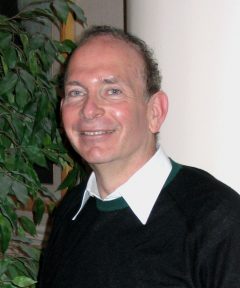|
Day: Thursdays Dates: September 12 – October 24, 2024 Please note that there will be no lecture on Thursday October 3, 2024 Time: 1:30pm-3:30pm Location: Online, Zoom Price: $150+HST A zoom link will be sent by email 1-2 business days prior to the first day of the lecture series. The zoom link provided is the same link for all 6 weeks of this lecture series. OverviewIt is not just about challenges with paying attention and being over-energetic. Attention Deficit Hyperactive Disorder (ADHD) is difficult to recognize and characterized by many obstacles in addition to attention problems. The name of the disorder changes every few years as do the criteria for its diagnosis. In this series, we will briefly trace the history of the concept of ADHD and theories about what causes it. The majority of the series will be devoted to the assessment and treatment of ADHD in children, adolescents and adults, focusing on recent research. Participants will have the opportunity to discuss their own perspectives about the disorder and its treatment. TopicsWeek 1: History, Definitions and Possible Causes We will review the history of concepts and definitions of ADHD. Most of lecture will be devoted to the current definition and contemporary understanding of the features of ADHD, its progression over the lifespan, the difficulties it brings, its prognosis and treatment. In addition to the mainstream scientific literature, we will briefly consider the minority position – that ADHD does not really exist but was fabricated by pharmaceutical companies. Week 2: Childhood ADHD This lecture will be devoted to the assessment and treatment of childhood ADHD. This week, we will discuss the advantages and disadvantages of diagnosing disorders in the early years from a developmental perspective. The challenges to parents and teachers are emphasized. Week 3: Adolescent ADHD Although it was once thought that ADHD generally disappears with the onset of adolescence, recent research indicates that it does not. Emphasis will be placed on interventions that help adolescents with ADHD from and maintain relationships with peers and with close friends Week 4: Adult ADHD It is now known that ADHD can continue into the adult years. Research on ADHD is adulthood is recent and quite limited. In this lecture, we will discuss what is known about the extent of adult ADHD, its assessment and treatment. Week 5: Gender and Cultural Differences The overwhelming proportion of people diagnosed with ADHD are boys and men, perhaps because of an educational system that may be incompatible with the basic make-up of boys. Girls may have different symptoms. Differences between schools in different countries and differences in expectations for academic achievement may result in cultural differences. Week 6: Alternatives to pharmacological treatment We will review several non-pharmacological interventions, including exercise, diet, yoga and meditation as well as false treatments that simply do not work. Participants who wish to will have the opportunity of sharing their own views and preferences about how ADHD should be treated. |
Lecturer Biography
|
Policies: Please review the Lifelong Learning Policies
